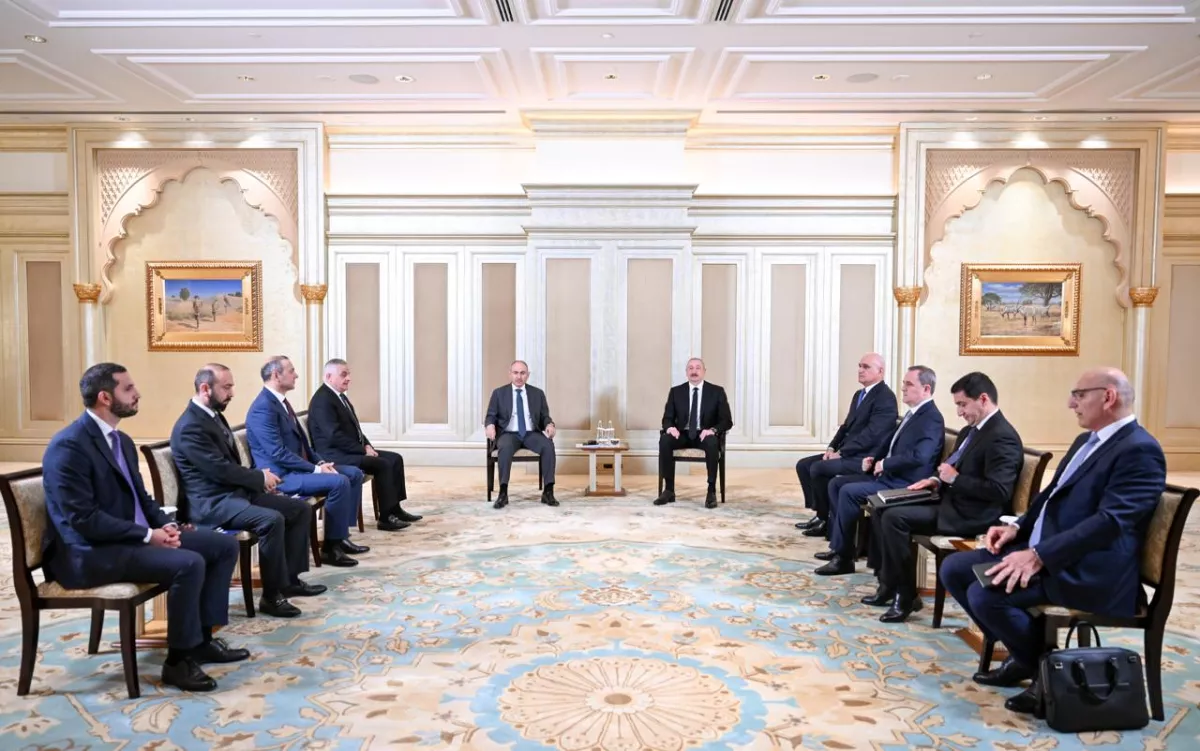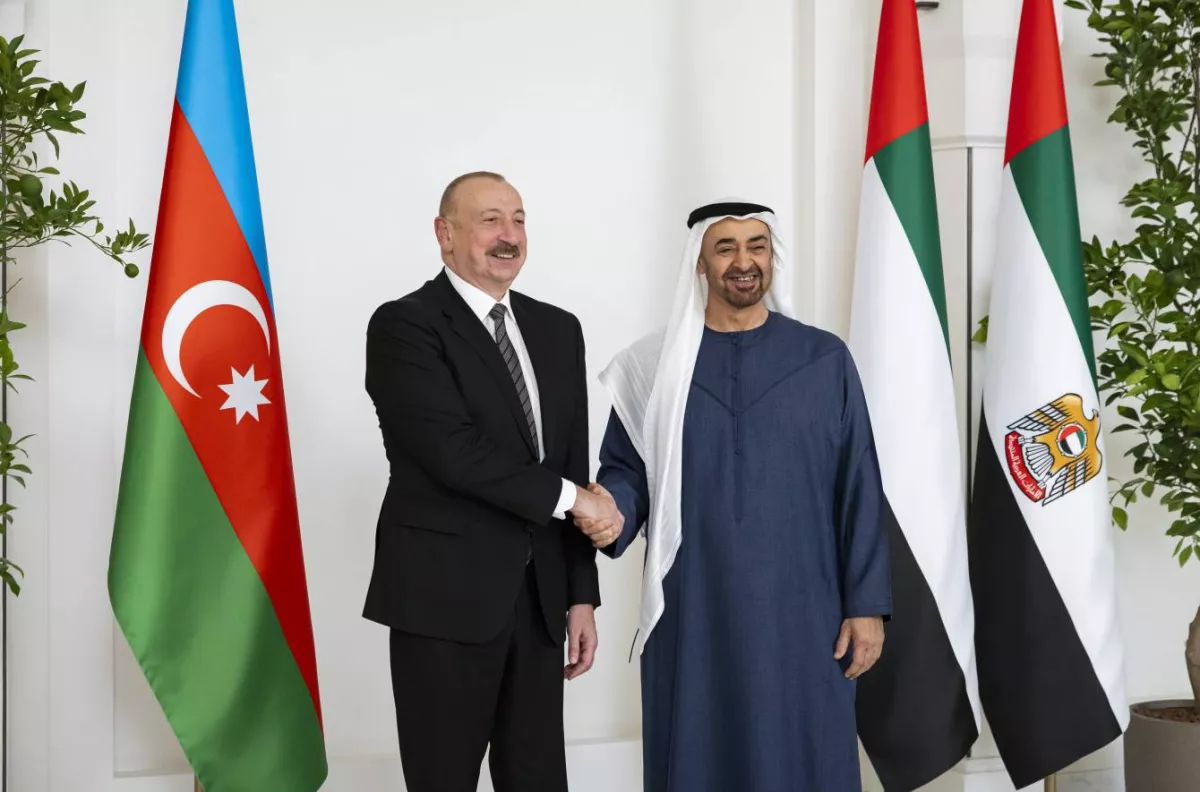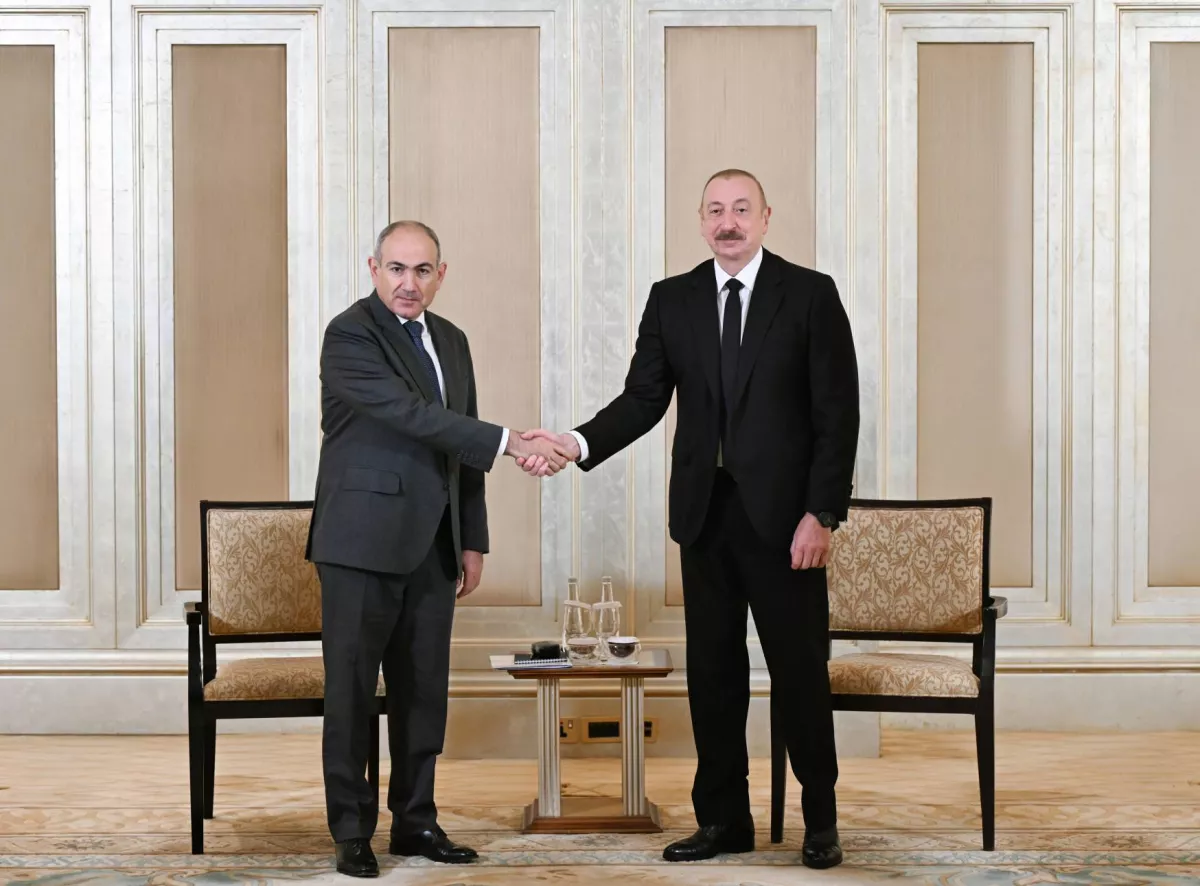Baku and Yerevan step onto solid ground Following the meeting between Aliyev and Pashinyan
On July 10, a meeting between the President of Azerbaijan, Ilham Aliyev, and the Prime Minister of Armenia, Nikol Pashinyan, took place in the capital of the United Arab Emirates — Abu Dhabi. Delegations from both countries were also present. Judging by their composition, it was immediately clear that the entire range of issues related to Armenian-Azerbaijani normalisation would be discussed and that the talks would be intense, comprehensive, and wide-ranging.
The Azerbaijani side was represented by Hikmet Hajiyev, Assistant to the President and Head of the Foreign Policy Affairs Department of the Presidential Administration; Deputy Prime Minister Shahin Mustafayev; Minister of Foreign Affairs Jeyhun Bayramov; and Elchin Amirbayov, Representative of the President of Azerbaijan for Special Assignments. The Armenian delegation included Secretary of the Security Council Armen Grigoryan; Deputy Prime Minister Mher Grigoryan; Minister of Foreign Affairs Ararat Mirzoyan; and Ruben Rubinyan, Deputy Speaker of the National Assembly and Special Representative for Negotiations with Türkiye.
Following a brief discussion in full format, the delegations left the room, and the leaders continued their conversation in a one-on-one format. After a two-hour dialogue, a break was announced, after which the negotiations resumed in an expanded format.

The Azerbaijani Ministry of Foreign Affairs released the following statement after the meeting:
“It was confirmed that bilateral negotiations represent the most efficient format to address all issues concerning the normalization process, and on this basis, it was agreed to continue such result-oriented dialogue. The leaders, taking stock of the progress made with respect to border delimitation process, instructed the respective state commissions to continue practical work in this regard. The sides also agreed to continue bilateral negotiations and confidence-building measures between the two countries.”
The Armenian Foreign Ministry expressed similar views in its statement.
Meanwhile, Caliber.az has learned the following through its own sources:
– The meeting was held in a highly constructive atmosphere.
– Discussions covered the full spectrum of key areas on the peace agenda.
– The main focus was on border delimitation, the opening and development of the Zangezur Corridor, and preparations for the initialling of a peace treaty.
– Talks on these topics were deep and substantive, marking a new phase in the negotiation process. The dialogue went beyond a formal exchange of positions, involving a genuine discussion of ideas and proposals. This enabled both sides to more clearly outline areas of common ground and remaining differences.
– As a result, a mutual agreement was reached to continue contact both at the technical level — within specialised working groups — and at higher political levels.
Thus, this meeting can rightfully be described as historic — both in terms of its content and its format. Since late 2023, the parties have increasingly transitioned to direct negotiations without intermediaries. While such contacts have occurred at various levels, until now, the two leaders had only met on the sidelines of international events, where the presence of the host country inevitably played a role. Moreover, those meetings were often brief due to the constraints of the occasion.
For the first time, however, the leaders came together in Abu Dhabi for talks organised specifically for them.
The choice of venue was far from accidental. It was proposed by the Azerbaijani side, based on the fact that the United Arab Emirates pursues an independent foreign policy and maintains equal distance from key power centres such as Russia, the United States, and the European Union. Furthermore, the UAE is a friendly country that has never shown bias towards either side in the conflict.

The tact and modesty shown by the UAE leadership also deserve recognition. The Emirati authorities simply provided the venue for the meeting and chose not to appear before the cameras on the day of the talks. Meetings between President Aliyev and Prime Minister Pashinyan with UAE President Mohammed bin Zayed Al Nahyan took place a day prior to the negotiations.
This latest meeting demonstrated that the negotiation process between Azerbaijan and Armenia does not require the involvement of third parties. Moreover, based on available information, it is reasonable to cautiously conclude that the process of preparing the peace agreement for signing is approaching its final stage. This is indicated, in particular, by the fact that the two sides discussed matters related to the initialling of the agreement.
As previously noted, one of the key topics of discussion was the opening of the Zangezur Corridor. It is worth recalling that a land route from mainland Azerbaijan to Nakhchivan is an obligation Armenia must fulfil as an outcome of the 44-day war. Furthermore, the political instability surrounding Iran makes the issue of the Zangezur Corridor even more pressing — not only for Azerbaijan, but also for Armenia, especially in the context of joining global connectivity projects.
It is becoming increasingly clear that Armenia is accepting the peace concept proposed by Azerbaijan. The internal situation in the country — marked by visible attempts by external forces to change the political regime through force — appears to be encouraging Prime Minister Nikol Pashinyan to place greater trust in Baku’s vision for peace and regional cooperation.

Even the absence of national flags in the negotiation hall in Abu Dhabi seemed to underscore a key point: the parties have moved into a stage of shared vision, mutual understanding, and risk assessment, making formalities seem secondary.
In summary, the meeting between the President of Azerbaijan and the Prime Minister of Armenia is rightly regarded as positive and constructive. It served as yet another confirmation that Baku is setting the tone for the peace process, shaping a new architecture of regional relations. Azerbaijan’s leadership in advancing the agenda of sustainable peace goes beyond mere diplomacy — it reflects a strategic vision for the future of the South Caucasus based on mutual respect for sovereignty, pragmatism, and a commitment to long-term stability. This role requires not only political will but also the ability to propose solutions that change the very logic of longstanding conflicts, opening space for dialogue and development.
While the meeting in the Emirati capital was not initially intended as a venue for signing a peace agreement, something suggests it could become the final milestone on the path to peace.








